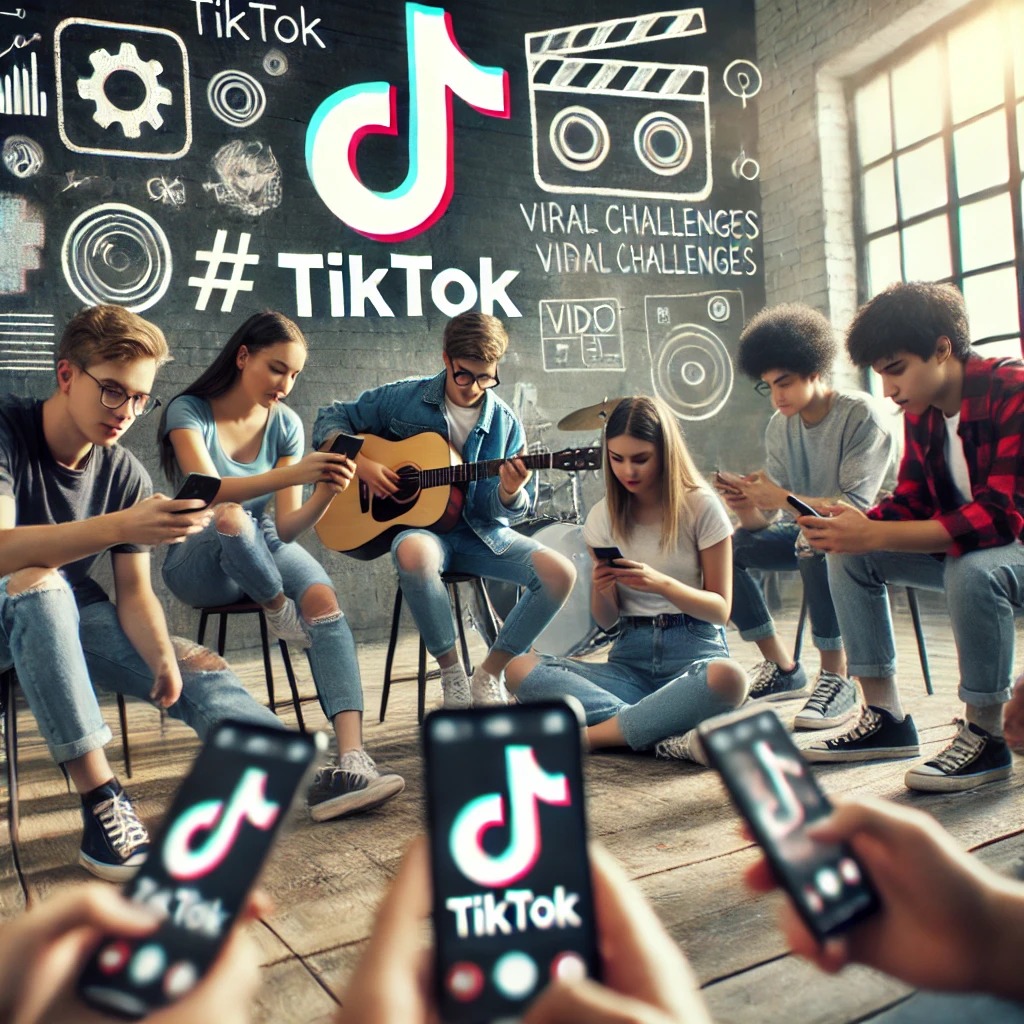How TikTok is Revolutionizing Content Creation and Youth Communication
In recent years, social media has experienced a significant transformation, with new platforms like TikTok leading the charge. Launched in 2016 by ByteDance, TikTok quickly gained popularity, particularly among younger users, thanks to its dynamic format centered around short, creative videos. With its rapid rise, TikTok has fundamentally changed not only how content is produced but also how young people communicate and interact with media.
This article will explore how TikTok has revolutionized content creation and examine the impact it has had on youth communication. By understanding these shifts, we can better grasp the future of social media and its evolving role in modern communication.
Evolution of Content Creation
From Text and Images to Short-Form Video
Social media platforms like Facebook and Twitter initially focused on text-based content and images. Over time, platforms such as Instagram and Snapchat shifted towards more visual content, emphasizing photos and short videos. However, TikTok has taken this evolution to the next level by centering its entire platform around short-form video content, typically 15 to 60 seconds long.
Democratization of Content Creation
What makes TikTok unique is how it democratizes content creation. With simple editing tools, filters, music, and effects, users can easily create polished videos with minimal resources. This means that anyone, regardless of their background or technical expertise, can become a content creator. TikTok’s viral nature, driven by its algorithm, also ensures that even users with a small following can have their videos seen by millions.
The app’s algorithm-based “For You” page curates content based on user preferences and behavior, making it possible for any video to go viral. This system contrasts with earlier platforms where follower count played a more significant role in determining a post’s reach.
TikTok’s Impact on Youth Communication
Shift Toward Visual and Interactive Communication
One of the most profound impacts of TikTok has been the shift toward visual and interactive communication among young users. Unlike older platforms that prioritized text-based communication, TikTok relies on videos, memes, and viral challenges to convey messages. The platform’s duet and stitch features allow users to interact with others’ videos, encouraging a more collaborative and engaging form of communication.
Memes and Trends as New Forms of Expression
TikTok has also popularized new ways of self-expression through memes, challenges, and viral trends. Young users frequently participate in these trends to showcase their creativity, humor, and identity. These trends serve as a common language, allowing people to communicate through shared cultural references.
Moreover, TikTok’s format suits the shorter attention spans of digital natives, with quick, digestible videos that capture and maintain attention in ways that longer-form content often cannot. This has resulted in a communication style that is fast-paced, entertaining, and constantly evolving.
TikTok and Social Activism
Beyond entertainment, TikTok has become a platform for social activism. Young people use the platform to raise awareness about important issues like climate change, mental health, and racial justice. TikTok’s ability to amplify voices and spread messages rapidly has made it a powerful tool for mobilizing and educating users on social and political issues.
The platform’s unique format also makes activism more accessible, as users can convey complex messages through simple, creative, and engaging videos, often making serious topics more approachable for a wider audience.
Transformation of Marketing and Branding
The Rise of Influencer Marketing
TikTok’s influence extends beyond individual users to brands and marketers. One of the most significant shifts has been the rise of influencer marketing. TikTok influencers, or “TikTokers,” often have massive followings and can create viral content that reaches millions. Brands are increasingly partnering with these influencers to promote products in ways that feel authentic and resonate with younger audiences.
Unlike traditional advertising, TikTok marketing often focuses on creativity and entertainment, making branded content feel less like an advertisement and more like organic, user-generated content. This approach has proven effective, as young audiences tend to value authenticity over highly polished, corporate messaging.
User-Generated Content and Engagement
Another important aspect of TikTok’s impact on marketing is its encouragement of user-generated content (UGC). Brands frequently launch hashtag challenges, encouraging users to create their own videos using branded hashtags. This strategy not only promotes engagement but also fosters a sense of community and collaboration between brands and their consumers.
UGC campaigns, such as dance challenges or meme-inspired content, have become highly effective in increasing brand visibility and creating a viral effect that spreads across the platform. This shift toward participatory marketing highlights the importance of engaging directly with consumers rather than relying solely on traditional advertising methods.
Conclusion
TikTok’s rapid rise to prominence marks a significant shift in the way content is created and consumed, especially among younger audiences. By democratizing content creation and promoting a new form of visual and interactive communication, TikTok has reshaped not only how we share media but also how we express ourselves and engage with the world around us.
For young people, TikTok has become more than just an entertainment platform; it’s a space for self-expression, collaboration, and even activism. Meanwhile, brands and marketers are rethinking their strategies to leverage TikTok’s unique engagement model and the power of influencer and user-generated content.
As TikTok continues to grow, its influence on communication, content creation, and marketing will likely deepen, paving the way for even more innovative and participatory forms of digital media in the years to come. TikTok’s success highlights the importance of creativity, spontaneity, and community in shaping the future of social media.
How TikTok is Revolutionizing Content Creation and Youth Communication
Recommended Post
Blockchain and Investment Security: Enhancing Transaction Safety and Reducing Fraud
